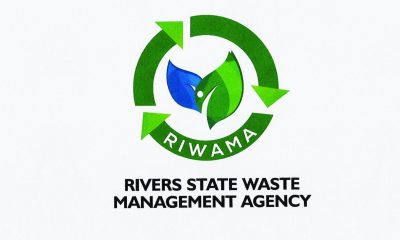Health
Fake Izal: NAFDAC Nabs Trader In Abakiliki
The National Agency for Food and Drug Administration and Control (NAFDAC) in Ebonyi has arrested one Chibueze Onukwe for allegedly marketing fake Izal germicide in Abakaliki markets.
The NAFDAC Coordinator in the state, Mr Richard Anichukwu, told the News Agency of Nigeria (NAN) in Abakaliki on Thursday that Onukwe was arrested following a tip-off from patriotic citizens.
“The suspect was arrested with 285 bottles of the 150m fake product; he sells them at the cost of N150 instead of the original price of N400.
“We want to alert the public that the original product has distinctive signs which include conspicuous printing on the packet, smaller message logo font, NAFDAC number printed on the package and heavy odour, among others.”
Anichukwu advised the public to look our for these features before buying the product.
He said the suspect, who was a mason before venturing into the trade, connived with the manufacturer to produce the germicide in large quantities.
“We will transfer the suspect to our enforcement unit for prosecution while efforts will be intensified to apprehend the suspected manufacturer”
The NAFDAC coordinator also notified the public of the infiltration of fake Piriton drug into the markets by suspected fake dealers.
“A man simply identified as Jerry bought five packets of the product from Onitsha and sold it to one woman residing in Abakaliki.
“The woman who always tastes the product before giving it to her babies discovered that it did not have the original taste and returned it to Jerry, who brought it to NAFDAC.
“We requested for the receipt and the receipt he brought bore the name of a tranport company without any information on it.”
Anichukwu noted that the original product was unscrewed on its cap as against the fake one and warned the public to search for the sign while purchasing the product.
“We will intensity efforts to arrest all those involved in the deadly racket and reiterate our resolve to rid the state of fake drugs and chemical products.”
Onukwe later told NAN that he purchased the Izal from Aba in Abia and ventured into the trade because he could not meet up with his family demands as a mason.
“I did not know that the product is fake, as I don’t have any knowledge of drug practice,” the suspect said.
NAN learnt that Onukwe attempted to escape from NAFDAC custody but was apprehended by a security official who sustained injuries while pursuing him.
Health
‘How Micro RNA Research Won Nobel Prize’
Two United States scientists who unraveled the human micro RNA have won the Nobel Prize in Physiology or Medicine 2024.
Victor Ambros and Gary Ruvkun won the coveted prize for their work on microRNA as their discoveries help explain how complex life emerged on earth and how the human body is made up of a wide variety of different tissues.
MicroRNAs influence how genes – the instructions for life – are controlled inside organisms, including humans.
Every cell in the human body contains the same raw genetic information, locked in our DNA.
However, despite starting with the identical genetic information, the cells of the human body are wildly different in form and function.
The electrical impulses of nerve cells are distinct from the rhythmic beating of heart cells. The metabolic powerhouse that is a liver cell is distinct to a kidney cell, which filters urea out of the blood.
The light-sensing abilities of cells in the retina are different in skillset to white blood cells that produce antibodies to fight infection.
So much variety can arise from the same starting material because of gene expression.
The US scientists were the first to discover microRNAs and how they exerted control on how genes are expressed differently in different tissues.
The medicine and physiology prize winners are selected by the Nobel Assembly of Sweden’s Karolinska Institute.
They said: “Their groundbreaking discovery revealed a completely new principle of gene regulation that turned out to be essential for multicellular organisms, including humans.
“It is now known that the human genome codes for over 1,000 microRNAs.”
Health
WHO Begins Regulation On Antibiotic Waste
The World Health Organisation (WHO) has begun acting to curb effects of antibiotic pollution.
The new guidance on wastewater and solid waste management for antibiotic manufacturing sheds light on this important but neglected challenge ahead of the United Nations General Assembly (UNGA) High-Level Meeting on antimicrobial resistance (AMR) taking place on 26 September 2024.
The emergence and spread of AMR caused by antibiotic pollution could undermine the effectiveness of antibiotics globally, including the medicines produced at the manufacturing sites responsible for the pollution.
Despite high antibiotic pollution levels being widely documented, the issue is largely unregulated and quality assurance criteria typically do not address environmental emissions. In addition, once distributed, there is a lack of information provided to consumers on how to dispose of antibiotics when they are not used, for example, when they expire or when a course is finished but there is still antibiotic left over.
“Pharmaceutical waste from antibiotic manufacturing can facilitate the emergence of new drug-resistant bacteria, which can spread globally and threaten our health. Controlling pollution from antibiotic production contributes to keeping these life-saving medicines effective for everyone,” said Dr Yukiko Nakatani, WHO Assistant Director-General for AMR ad interim.
Globally, there is a lack of accessible information on the environmental damage caused by manufacturing of medicines.
“The guidance provides an independent and impartial scientific basis for regulators, procurers, inspectors, and industry themselves to include robust antibiotic pollution control in their standards,” said Dr Maria Neira, Director, Department of Environment, Climate Change and Health, WHO. “Critically, the strong focus on transparency will equip buyers, investors and the general public to make decisions that account for manufacturers’ efforts to control antibiotic pollution.”
Health
Kebbi Harmonises Doctors’ Salaries To Curb Brain Drain
In a concerted effort to curb brain drain, the Kebbi State Government has harmonised medical doctors’ salaries to be at par with their colleagues in the federal government’s tertiary health facilities.
Kebbi State Commissioner for Health, Musa Inusa-Isma’il, disclosed this at the handing over of ambulances to the state-owned health facilities at the Ministry of Health in Birnin Kebbi yesterday.
Inusa Isma’il, according to a statement by Ahmed Idris, the Chief Press Secretary to the governor, said the essence of the harmonisation was to retain the existing medical doctors and attract more to the services of the state.
According to him, the doctors across the state had already started enjoying the new salaries from August 2024.
He said the release of the vehicles was in fulfilment of Governor Nasir Idris’ promise to uplift health care services in the state.
“His Excellency said I should inform you, the beneficiaries of this gesture, that the vehicle should be strictly used for the intended purpose. It should not be used for anything else.
“If there is no referral case, each of the vehicles must be parked at the hospital by 6 pm. The governor said you should warn your drivers against reckless driving as well as violating the instructions.
“We should also do everything possible to reciprocate the gesture by working according to the terms and conditions attached,” he advised.
The benefiting health facilities included Sir Yahaya Memorial Hospital, Birnin Kebbi; State Teaching Hospital, Kalgo; General Hospital, Argungu; General Hospital, Yauri; General Hospital, Zuru; and General Hospital, Bunza.
In his speech, the permanent secretary of the ministry, Dr Shehu Koko, recalled that the ambulances were handed over to the ministry last Friday by the governor for the onward handover to the benefiting hospitals.
He observed that the ambulances would go a long way in improving the referral system in the state, adding that delays in reaching the secondary and tertiary facilities would be eliminated.
The permanent secretary attributed the high rate of maternal mortality in the country to delays in getting to the health facilities for proper medical care.
“We believe with the provision of these ambulances, part of the gaps we have in our referral system will be addressed, whereby patients who require secondary healthcare could be easily transported to secondary and tertiary health centres, where they can get such help,” he said.
In a goodwill message, Commissioner for Information and Culture Alhaji Yakubu Ahmed expressed gratitude to the governor for the support he has given to the ministry to excel.
While advising the beneficiaries to use the vehicles judiciously, the commissioner advised that services and maintenance of the vehicles must be prompt to derive the maximum benefits from the vehicles.
The commissioner also highlighted some achievements recorded by the government in the last year, including beautification of the state capital, completion of a multimillion-naira ultramodern state secretariat, road construction, construction and renovation of classrooms and upgrading of some health facilities, among others.
-

 News3 days ago
News3 days agoFubara Graces Agric Commissioner’s Wedding At Ciwa
-
Sports3 days ago
‘Don’t Rely Too Much On NCAA Athletes’
-
Politics3 days ago
PDP, APC Trade Blame Over Killings In Osun Local Councils’ Crisis
-
News3 days ago
‘We’ll Upscale Education Infrastructure To Advance Learning In Rivers’
-
Business3 days ago
Maritime Journalists Confer Iconic Award On Customs CG
-

 News3 days ago
News3 days agoBe Innovative In Waste Management, Fubara Tasks RIWAMA ….. Inaugurates Six-Member Board
-
Sports3 days ago
Rangers Showed Character In Remo Defeat – Coach
-
Politics3 days ago
Lagos Assembly Commotion: Lawmakers Reject Obasa’s Return, Pass Confidence Vote On Meranda

